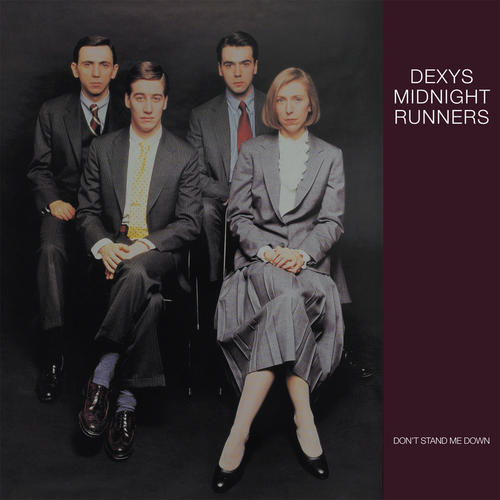
Don't Stand Me Down
by Dave ThompsonUtterly overlooked upon release, condemned and chastised by every reviewer who came within 50 yards of it, Dexy's Midnight Runners' third album arrived in 1985 with the band's once-illuminated fame looking seriously battered, not only by the three years that Kevin Rowland kept listeners waiting, but also by the fact that he'd seemingly thrown away every pop classic blueprint he'd ever laid his hands on. Quite frankly, the album was a mess, with half the songs sounding like extemporized intros, and the rest seemingly trapped within their own middle eights. The fact that the Smiths, to name but one, had long since made a virtue of such intricacies was irrelevant -- the world wanted another "Come on Eileen." Instead they got "The Occasional Flicker," a song-cum-ramble-cum-rant that apparently went out of its way to disrupt those demands. Ah, but it's such a magnificent disruption. Freed (in his own mind at least) from the tiresome dictates of the band's hitmaking past, Rowland conceived an album that drifts past in a blur of haunting and sometimes haunted melodies, with the vocal lines floating almost conversationally over them. Play the album once, then think back on it later, and all you remember is the sheer casual joy of it all, the sense that Dexy's gathered in the studio for fun as much as profit, and if nobody liked what they did -- which they didn't -- then so be it. Listen closer, however, and even the lackadaisical swagger is expertly crafted. "This Is What She's Like," doomed to become the band's first non-charting single since "Liars A to E," is an absolute corker once you give it a chance to sink into your skull and, track by track, Don't Stand Me Down unfolds to become not the ugly duckling of Dexy's Midnight Runners' hit-packed catalog, but the new dawn that could -- should -- have finally exorcised "Eileen" and her buddies. And when it didn't, the band broke up.
